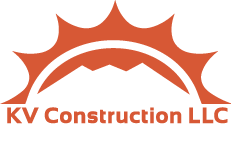Introduction to Fiber Cement Siding
Fiber cement siding has emerged as a leading choice for homeowners seeking durability and aesthetic appeal. Composed of wood pulp, cement, sand, and water, this material withstands adverse weather, resists fire, and offers a resemblance to natural wood, stone, or brick.
Benefits of Fiber Cement Siding
Fiber cement siding is celebrated for its strength and longevity, making it a worthwhile investment. It is impervious to rot, insects, and fire, reducing maintenance costs and enhancing household safety.
Best Brands for Fiber Cement Siding
James Hardie
Renowned for innovation, James Hardie offers siding that excels in both function and form. Their products are engineered to endure the specific climates where they are installed, ensuring optimal performance.
Allura
Allura provides an extensive range of fiber cement products, known for their deep textures and rich colors that maintain their vibrance over time.
GAF
GAF’s Weatherside profile caters to those needing siding for smaller areas or specific architectural styles, maintaining the aesthetic integrity of the structure.
Nichiha
Offering a blend of traditional and modern designs, Nichiha is a preferred choice for those seeking unique aesthetic features alongside robust durability.
American Fiber Cement Corporation
Preferred in commercial projects, their siding is notable for its ability to retain color and resist environmental wear.
Choosing the Right Siding for Your Home
Selecting the right fiber cement siding involves considering the architectural style of the home, local climate, and the desired maintenance level. Consulting with experienced professionals like those at KV construction LLC, based in Seattle, WA, can guide homeowners through the selection process, ensuring the siding not only meets but exceeds their expectations.
Installation and Maintenance
Proper installation is crucial for maximizing the lifespan of fiber cement siding. Professional installation ensures that the siding is correctly fitted and sealed, preventing moisture intrusion and potential damage.
Environmental Impact
Fiber cement siding is a sustainable option, often containing recycled materials. It is also energy-efficient, contributing to lower heating and cooling costs, and is fully recyclable at the end of its life cycle.
Conclusion
Choosing fiber cement siding is a significant decision that affects both the appearance and resilience of a home. With various options on the market, homeowners are advised to select high-quality brands and seek professional advice for installation.

